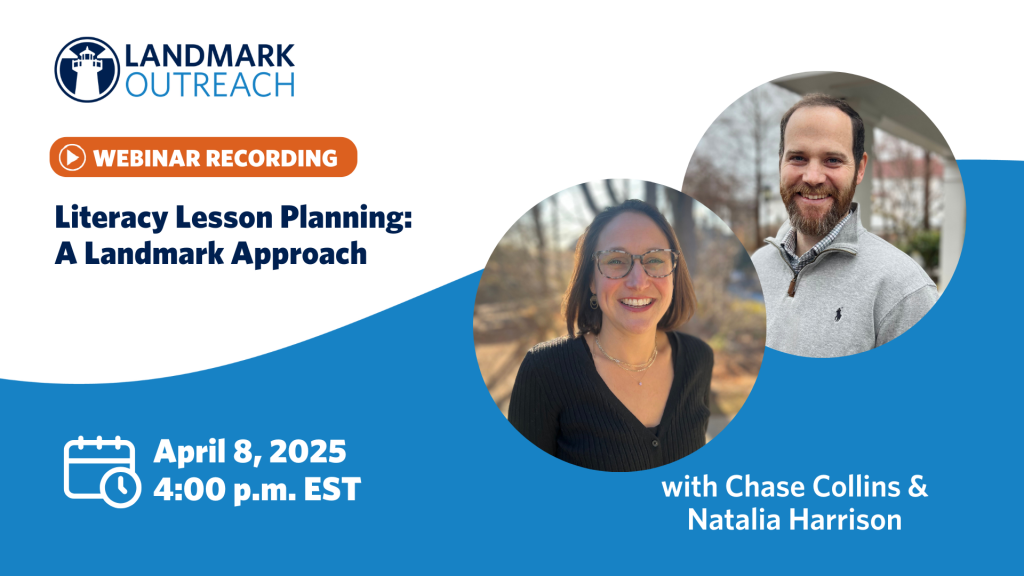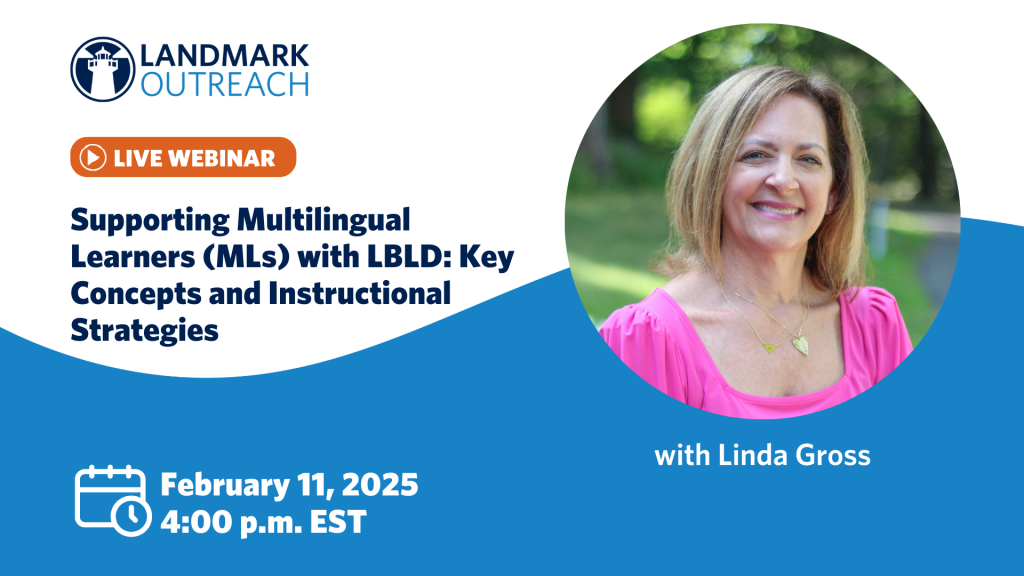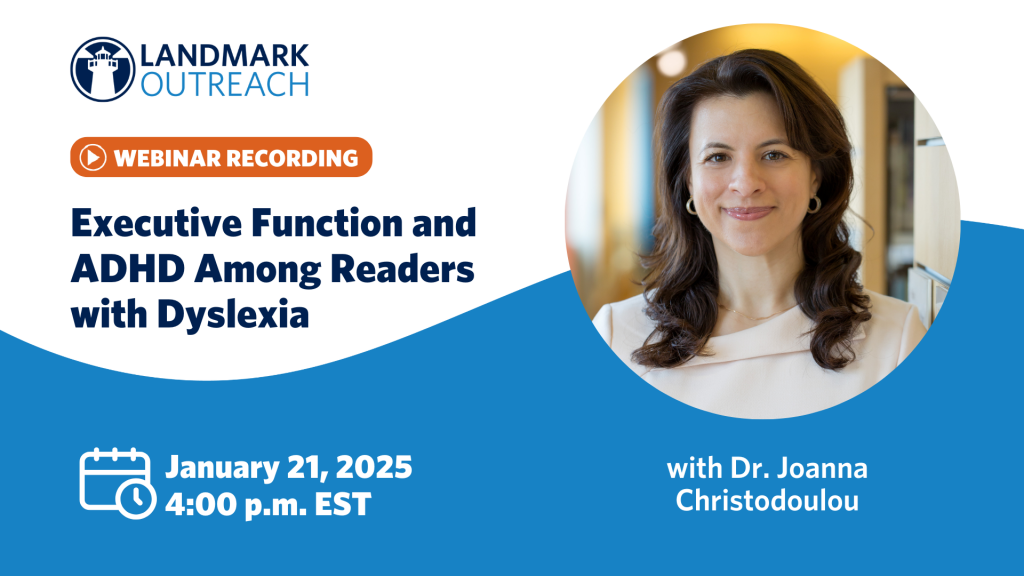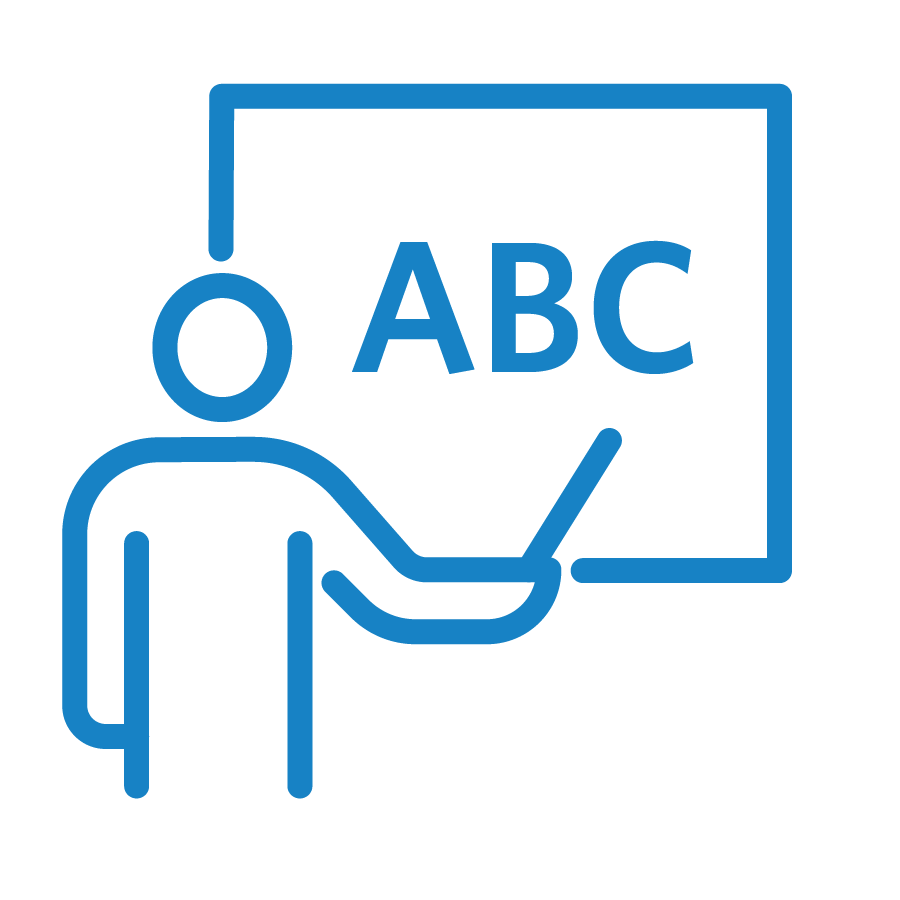Filter resources by:
Select a filter from the drop down menu to apply the filter. Page reloads upon selection

Apr 9, 2025
Must be logged in
Literacy Lesson Planning: A Landmark Approach | Webinar Recording
Join Landmark High School Assistant Academic Dean Chase Collins in conversation with Academic Advisor Natalia Harrison to explore how to use a single text (article or short story) to build a dynamic lesson plan that addresses all literacy domains (from phonemic awareness to writing).
View Webinar
Apr 1, 2025
Pre-Reading Strategies to Support Struggling Readers
Supporting students with limited background knowledge requires thoughtful and explicit preparation and instruction. Active reading strategies often focus on what to do during reading, while comprehension assessments typically take place after reading through teacher-generated questions or summaries. For struggling readers, these strategies remain important to help them manage and organize their understanding of what they
Read Blog
Mar 28, 2025
What is Phonemic Awareness?
Why is Phonemic Awareness Important? Extensive research indicates that phonemic awareness is “a critical foundational skill for reading” (IDA, 2022). Being able to identify and manipulate the sounds in words is an essential component of reading development; when students develop an understanding that words are made up of different sounds, they can more easily associate
Read Strategy
Mar 28, 2025
What is Decoding?
Word Recognition Word recognition is essential to proficient reading. Scarborough’s Reading Rope model asserts that to achieve skilled reading, word recognition is equally as important as language comprehension (Scarborough, 2001, p. 98). Noted literacy expert Louise Spear-Swerling describes the development of word recognition as the process of intertwining phonological and phonemic awareness and letter-sound knowledge
Read Strategy
Mar 25, 2025
How Spelling Supports Reading and Writing
Common Misconceptions about Spelling Spelling, also called encoding, involves taking a spoken word and turning it into a written word. There are several frequently occurring misconceptions about spelling, one of which is the assumption that spelling is mainly a visual skill. In fact, spelling is primarily a language-based skill as opposed to a visual one.
Read Strategy
Mar 11, 2025
Four-Part Processing Model for Word Recognition
Four-Part Processing Model For some, reading is not an automatic process, and they struggle to decode and comprehend text. To better understand why some students struggle and how proficient reading develops, researchers have developed various models. These include the Simple View of Reading, Ehri’s Phases of Reading Development, and Scarborough’s Reading Rope. One particularly useful
Read Strategy
Feb 24, 2025
Making Social Stars! Adapting Social Skills Curricula for Elementary Students with Dyslexia
Social Literacy The hustle and bustle of students in the hallway as they enter the classroom marks the start of a new school day. In addition to academics, students navigate numerous social interactions—giving personal space, joining conversations, and interpreting non-verbal cues. How do students manage these social skills, and where do they learn them? Research
Read Blog
Feb 12, 2025
Must be logged in
Supporting Multilingual Learners (MLs) with LBLD: Key Concepts and Instructional Strategies | Webinar Recording
Join Landmark Outreach Lead Faculty Member Linda Gross to explore instructional strategies to assist multilingual learners (MLs) identified with LBLDs in managing classroom language demands.
View Webinar
Jan 30, 2025
Must be logged in
Executive Function and ADHD Among Readers with Dyslexia | Webinar Recording
Join Dr. Joanna Christodoulou, professor and director of the Brain, Education, and Mind (BEAM) Lab at MGH Institute of Health Professions, for a deep dive into the impact of executive function and ADHD on reading among students with reading disabilities.
View Webinar